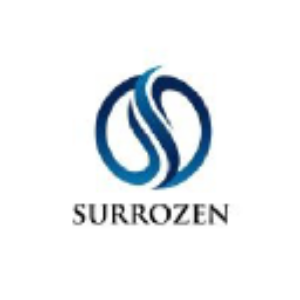Surrozen Publishes Study in Translational Vision Science and Technology Demonstrating the Promise of SZN-413 in Preclinical Models of Diabetic Retinopathy
Rhea-AI Summary
Surrozen (Nasdaq: SRZN) announced promising results from recent studies published in Translational Vision Science and Technology. The research highlighted SZN-413, a bi-specific antibody targeting FZD4 and LRP5, as a potential novel treatment for diabetic retinopathy, a major cause of vision loss. SZN-413 was shown to effectively reduce retinal vascular leakage by approximately 80% and significantly diminished areas of pathologic neovascularization. This mechanism may address both retinal non-perfusion and leakage, indicating a potential breakthrough for retinal vascular diseases.
Positive
- SZN-413 reduced retinal vascular leakage by approximately 80%.
- SZN-413 significantly diminished pathologic neovascularization areas, comparable to positive control.
- Potential to address both retinal non-perfusion and vascular leakage in diabetic retinopathy.
Negative
- None.
News Market Reaction 1 Alert
On the day this news was published, SRZN declined NaN%, reflecting a moderate negative market reaction.
Data tracked by StockTitan Argus on the day of publication.
- Results highlight a potential novel treatment for diabetic and other retinopathies
- Unique Wnt-mediated mechanism increases vascular integrity, and transforms pathologic regrowth into physiological regrowth of retinal blood vessels
SOUTH SAN FRANCISCO, Calif., Sept. 26, 2022 (GLOBE NEWSWIRE) -- Surrozen, Inc. (Nasdaq: SRZN), a company pioneering targeted therapeutics that selectively modulate the Wnt pathway for tissue repair and regeneration, announced today the publication of an article by Surrozen scientists in the journal Translational Vision Science and Technology The results observed with Surrozen’s proprietary FZD4-specific agonist, SZN-413, highlight the potential for this novel mechanism of action to simultaneously address the retinal non-perfusion and vascular leakage observed in both oxygen-induced and VEGF-induced preclinical diabetic retinopathy (DR) models.
Diabetic retinopathy is a microvascular complication of diabetes and a serious public health problem as it is a major cause of vision loss and disability in the middle-aged population. The pathogenesis of DR leads to vascular leakage, which causes diabetic macular edema, and capillary occlusion causing retinal ischemia. These areas of retinal non-perfusion can lead to overproduction of multiple signaling molecules, such as VEGF, that contribute to vascular leakage and pathologic angiogenesis. There are currently multiple anti-VEGF therapies available, however these have not been shown to improve retinal ischemia – leaving a high unmet medical need for new mechanisms of action that have the potential to achieve retinal reperfusion and can reduce the production of factors contributing to vascular leakage and pathologic neovascularization.
SZN-413, a bi-specific antibody that targets FZD4 and LRP5, induced Wnt signaling and upregulated blood-retinal barrier gene expression in retinal endothelial cells (ECs). FZD4-mediated Wnt signaling is known to play a critical role in retinal vascular development and vessel barrier function in humans and rodent models. The results presented in this paper confirmed that FZD4 and LRP5 are the most abundant and relatively specific receptors expressed in the retinal ECs and SZN-413 induced tight junction proteins in retinal vascular ECs. In a preclinical oxygen-induced retinopathy model, intravitreal injections of SZN-413 significantly reduced avascular area size compared to the positive control, aflibercept. In addition, SZN-413 significantly reduced the pathologic neovascularization area size compared to vehicle and comparable to the positive control. In a VEGF-induced vascular leakage model, SZN-413 reduced retinal vascular leakage from baseline by approximately
“Today Surrozen scientists reported results from studies showing that SZN-413, a bi-specific antibody that binds to FZD4 and LRP5, potently inhibited pathologic neovascularization, restored physiological neovascularization and prevented retinal vascular leakage. These results suggest that this modulation of FZD4 signaling may address important pathologic vascular characteristics of diabetic retinopathy,” said Wen-Chen Yeh, M.D., Ph.D., Chief Scientific Officer at Surrozen.
Yang Li, Ph.D., Senior Vice President of Biology at Surrozen, added “The results in this paper further demonstrate Surrozen’s ability to effectively generate selective Wnt surrogates that stimulate tissue repair and renewal, and in this case, in disease models of diabetic retinopathy. SZN-413 has a novel mechanism of action that through FZD4 agonism may simultaneously address the retinal non-perfusion and leakage characteristics of diabetic retinopathy. We look forward to continued development of this lead therapeutic candidate that may offer a new treatment strategy for retinopathies and other diseases of the eye.”
About Wnt Signaling
Wnt signaling plays key roles in the control of development, homeostasis and regeneration of many essential organs and tissues, including liver, intestine, retina, lacrimal gland, lung, cornea, pancreas, skin and others. Modulation of Wnt signaling pathways has potential for treatment of degenerative diseases and tissue injuries. Surrozen’s platform and proprietary technologies have the potential to overcome the limitations in pursuing the Wnt pathway as a therapeutic strategy.
About SZN-413
Surrozen nominated SZN-413, a FZD4 tetravalent bi-specific antibody, as a development candidate in the first quarter of 2022 for the treatment of retinal vascular associated diseases. FZD4 mediated Wnt signaling is known to play a critical role in retinal vascular integrity and function. Data generated in preclinical models of retinopathy demonstrated SZN-413 stimulated Wnt signaling and was able to transform pathologic regrowth into physiological regrowth of retinal blood vessels.
About Surrozen
Surrozen is a clinical-stage biotechnology company discovering and developing drug candidates to selectively modulate the Wnt pathway. Surrozen is developing tissue-specific antibodies designed to engage the body’s existing biological repair mechanisms with potential application across multiple diseases such as inflammatory bowel disease, hepatitis, eye diseases, and diseases of the lacrimal gland, lung and airway, pancreas, skin and many others. For more information, please visit surrozen.com
Forward Looking Statements
This press release contains certain forward-looking statements within the meaning of the federal securities laws. Forward-looking statements generally are accompanied by words such as “will,” “may,” “suggest,” “potential,” “promise,” “look forward,” “expect,” “could,” or the negative of these words and similar expressions that predict or indicate future events or trends or that are not statements of historical matters. These forward-looking statements include, but are not limited to, statements regarding Surrozen’s discovery, research and development activities, in particular its development plans for SZN-413, including anticipated clinical development timelines, and the potential for such product candidate to be used to treat human disease. These statements are based on various assumptions, whether or not identified in this press release, and on the current expectations of the management of Surrozen and are not predictions of actual performance. These forward-looking statements are provided for illustrative purposes only and are not intended to serve as, and must not be relied on as, a guarantee, an assurance, a prediction, or a definitive statement of fact or probability. Actual events and circumstances are difficult or impossible to predict and will differ from assumptions. Many actual events and circumstances are beyond the control of Surrozen. These forward-looking statements are subject to a number of risks and uncertainties, including the initiation, cost, timing, progress and results of research and development activities, preclinical or and clinical trials with respect to SZN-413 and Surrozen’s other drug candidates; Surrozen’s ability to identify, develop and commercialize drug candidates; Surrozen’s ability to advance SZN-413 and successfully complete preclinical studies and clinical studies; the effects of the ongoing coronavirus (COVID-19) pandemic or other infectious diseases and natural disasters on Surrozen’s business; volatility in global economic, regulatory and market conditions, which may be adversely affected by the conflict between Russia and Ukraine; and those factors discussed in our Annual Report on Form 10-K for the year ended December 31, 2021, primarily under the heading “Risk Factors,” our Quarterly Report on Form 10-Q for the quarter ended June 30, 2022, and other documents Surrozen has filed, or will file, with the Securities and Exchange Commission. If any of these risks materialize or our assumptions prove incorrect, actual results could differ materially from the results implied by these forward-looking statements. There may be additional risks that Surrozen presently does not know, or that Surrozen currently believes are immaterial, that could also cause actual results to differ from those contained in the forward-looking statements. In addition, forward-looking statements reflect Surrozen’s expectations, plans, or forecasts of future events and views as of the date of this press release. Surrozen anticipates that subsequent events and developments will cause its assessments to change. However, while Surrozen may elect to update these forward-looking statements at some point in the future, Surrozen specifically disclaims any obligation to do so, except as required by law. These forward-looking statements should not be relied upon as representing Surrozen’s assessments of any date subsequent to the date of this press release. Accordingly, undue reliance should not be placed upon the forward-looking statements.
Media Contact:
Ian Stone, Managing Director
Evoke Canale
Tel.: (619) 518-3518
Email: ian.stone@evokegroup.com
Investor Contact:
Email: Investorinfo@surrozen.com








